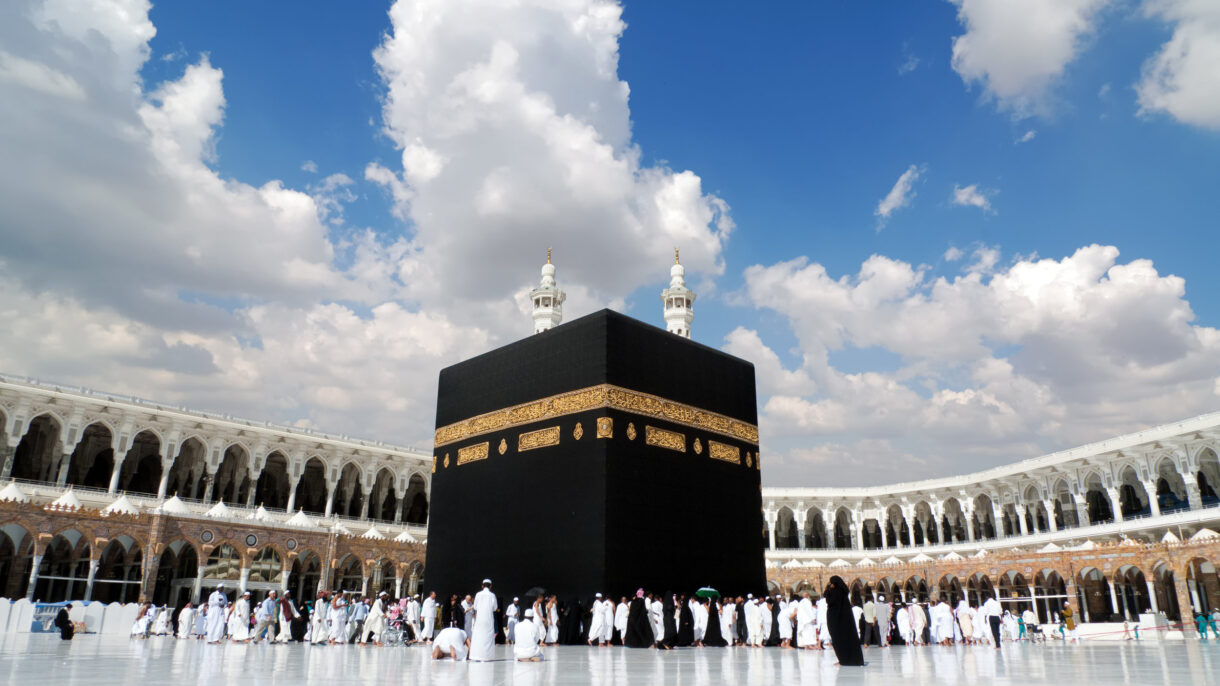
Islam is a monotheistic religion revealed by Allah (SWT) to Prophet Muhammad (PBUH) over 1,400 years ago. It is the second-largest religion in the world, with over 1.9 billion followers. The word Islam itself means “submission to the will of Allah,” and a Muslim is one who submits to His divine commandments.
Core Beliefs of Islam
Islam is founded upon six fundamental beliefs:
- Belief in Allah (SWT): The absolute oneness of God, who is the Creator, Sustainer, and Lord of the universe.
- Belief in Angels: Created by Allah to carry out His commands, such as Angel Jibreel (Gabriel) who delivered revelations to prophets.
- Belief in Divine Books: The Quran is the final and most authentic scripture, preceded by the Torah, Psalms, and Gospel.
- Belief in Prophets: Allah sent many prophets, including Adam, Noah, Abraham, Moses, Jesus, and Muhammad (PBUH) as the final messenger.
- Belief in the Day of Judgment: All humans will be resurrected and held accountable for their deeds in the Hereafter.
- Belief in Qadar (Divine Decree): Everything happens according to Allah’s knowledge and wisdom.
The Five Pillars of Islam
Islam is practiced through five essential pillars that define a Muslim’s faith and actions:
- Shahada (Faith): Declaring that there is no god but Allah and that Muhammad (PBUH) is His messenger.
- Salah (Prayer): Performing five daily prayers to maintain a spiritual connection with Allah.
- Zakat (Charity): Giving a portion of wealth to the needy to promote social justice.
- Sawm (Fasting): Observing fasts during the holy month of Ramadan for self-discipline and spiritual purification.
- Hajj (Pilgrimage): A once-in-a-lifetime journey to Makkah for those who are financially and physically capable.
The Quran: The Holy Book of Islam
The Quran is the final revelation from Allah, preserved in its original form. It contains guidance on every aspect of life, including worship, morality, justice, and human rights. The Quran emphasizes monotheism, mercy, and righteousness, making it the ultimate source of Islamic teachings.
Sunnah: The Way of the Prophet (PBUH)
The Sunnah refers to the sayings, actions, and approvals of Prophet Muhammad (PBUH). It complements the Quran and provides practical examples of how to live according to Islamic principles. The Hadith literature records these traditions, offering valuable insights into the Prophet’s exemplary character and lifestyle.
Islam as a Way of Life
Islam is not just a religion; it is a complete way of life that governs all aspects of personal, social, economic, and political life. It teaches love, compassion, justice, and humility. Some of the key aspects of Islamic life include:
- Family and Society: Islam promotes strong family bonds, respect for parents, and kindness towards neighbors.
- Justice and Equality: Every human being is equal in the eyes of Allah, regardless of race, nationality, or social status.
- Modesty and Morality: Islam encourages modesty in dress, speech, and conduct.
- Knowledge and Wisdom: Seeking knowledge is an obligation for every Muslim, as it leads to enlightenment and success.
Islam and Peace
Contrary to misconceptions, Islam is a religion of peace. The word “Islam” itself is derived from “Salaam,” meaning peace. The Quran advocates kindness, tolerance, and justice. It condemns all forms of oppression and violence and encourages mutual respect among people of all faiths.
Conclusion
Islam is a faith of devotion, discipline, and divine guidance. It offers a complete code of life that promotes spirituality, morality, and social harmony. By following the Quran and Sunnah, Muslims strive to achieve inner peace and eternal success in the Hereafter.
May Allah guide us all on the straight path. Ameen.


0 Comments